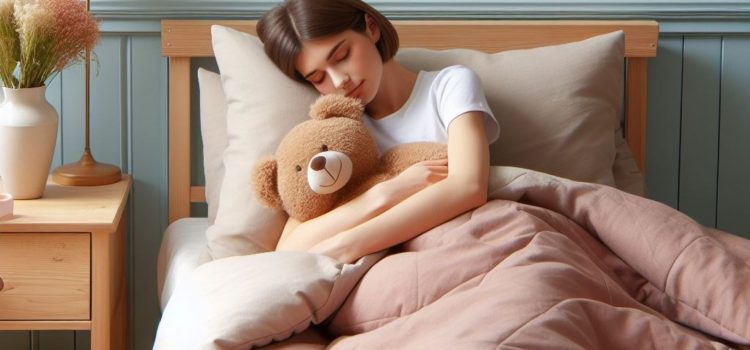

This article is an excerpt from the Shortform guide to "The Mel Robbins Podcast". Shortform has the world's best summaries and analyses of books, podcasts, and more.
Like this article? Sign up for a free trial here.
Can you improve your sleep by breathing properly? What are the best breathing techniques for sleep?
From his personal health history, Patrick McKeown recounts the negative ramifications of habitual mouth breathing, such as inflammation and sleep issues. High breathing rates can actually disturb rest, leading to tiredness throughout the following day.
Here are ways you can get better sleep by properly breathing, according to tips on The Mel Robbins Podcast.
Improving Sleep Quality Using Breathing Techniques
Changing from mouth to nose breathing is one of the best breathing techniques for sleep. To facilitate this transition, he suggests the use of special tape to keep the mouth closed during sleep, thus promoting unconscious nose breathing.
Further, McKeown proposes that a slower pace of nose-breathing be integrated into day-to-day life. This step is needed in maintaining proper sleep hygiene and practicing gentle, slow breaths before bedtime. Utilizing these techniques can stimulate the vagus nerve, reduce the heart rate, and help prepare the body for rest.
Effective use of the diaphragm can further assist individuals battling OSA.
Managing Obstructive Sleep Apnea Through Breath Control
McKeown spoke at length about obstructive sleep apnea (OSA) during the podcast. In his explanation, OSA occurs when an individual stops breathing for a minimum of ten seconds while asleep. McKeown detailed how OSA disrupts deep sleep, putting undue stress on the cardiovascular system.
Critical to managing OSA, McKeown outlined, are four main elements. The body must be able to down-regulate effectively, linking this to the role OSA plays in insomnia. It’s also important that the muscles in the upper airway function well, for which myofunctional therapy can prove helpful.
Maintaining a closed mouth with the tongue positioned at the roof of the mouth will also help clear airways. McKeown noted that middle-aged men frequently drinking beer and accumulating abdominal weight can inhibit diaphragmatic movement and promote upper chest breathing, increasing the risk of OSA.
He underscored the necessity of mouth closure in mitigating OSA but also acknowledged that individuals suffering from severe OSA may need to breathe through their mouths while asleep.
Context
Proper breathing plays a crucial role in ensuring quality sleep and overall well-being. Understanding the connection between breathing and sleep-related disorders is essential for addressing issues such as obstructive sleep apnea (OSA) and insomnia. OSA is a condition where breathing is repeatedly interrupted during sleep due to a blockage in the airway, leading to fragmented sleep and potential health risks. Insomnia, on the other hand, refers to difficulty falling asleep or staying asleep. Both conditions can be influenced by breathing patterns.
One significant factor that affects sleep quality is habitual mouth breathing. Breathing through the mouth instead of the nose can disrupt normal airflow and lead to various negative effects on both sleep and health. Mouth breathing bypasses important nasal functions such as filtering, humidifying, and warming incoming air, which can result in dryness of the throat and increased susceptibility to respiratory infections. Additionally, mouth breathers are more prone to snoring and experiencing symptoms associated with OSA.
The relationship between breathing patterns and insomnia further highlights the importance of proper breath control for optimal sleep quality. Techniques aimed at improving breath control can help individuals regulate their respiration during bedtime, promoting relaxation and facilitating better sleep onset.

———End of Preview———
Like what you just read? Read the rest of the world's best guides to The Mel Robbins Podcast" at Shortform.
Here's what you'll find in our full The Mel Robbins Podcast episode summaries:
- Advice to make your life and your personal relationships better
- How to boost your confidence with techniques recommended by experts
- Research-based lessons combined with personal stories






